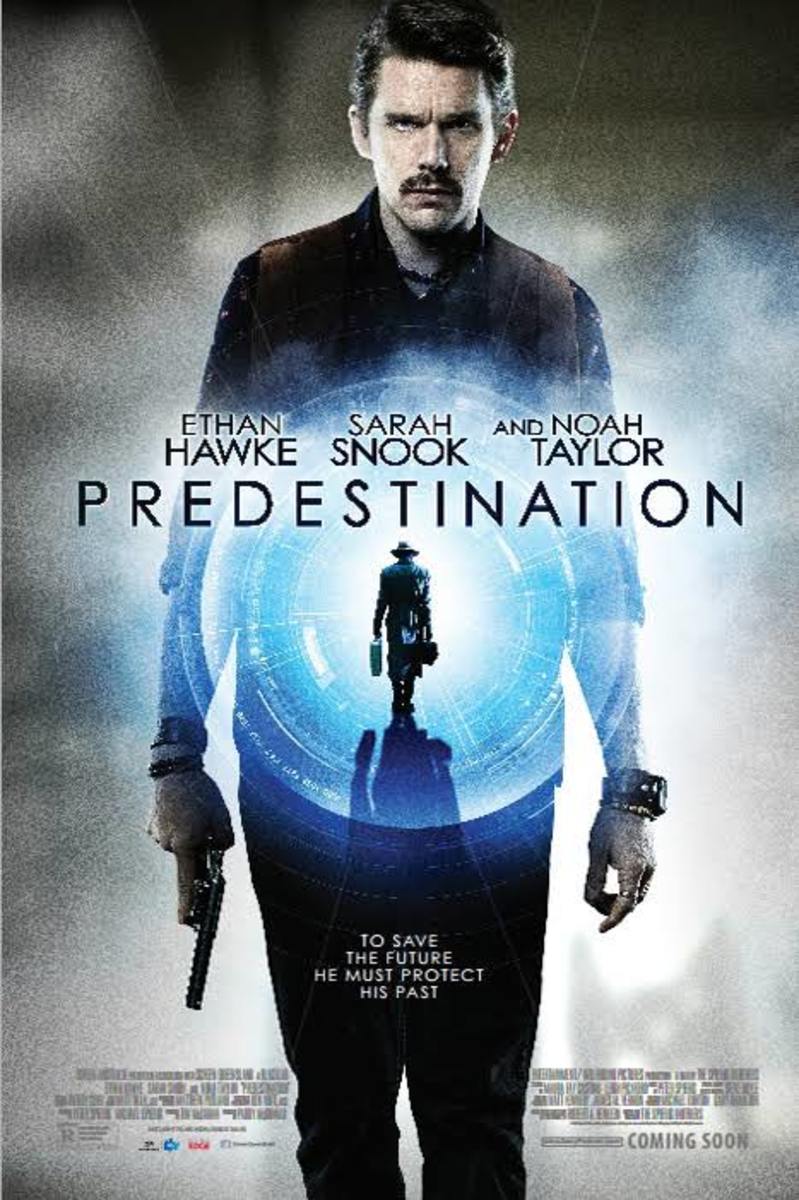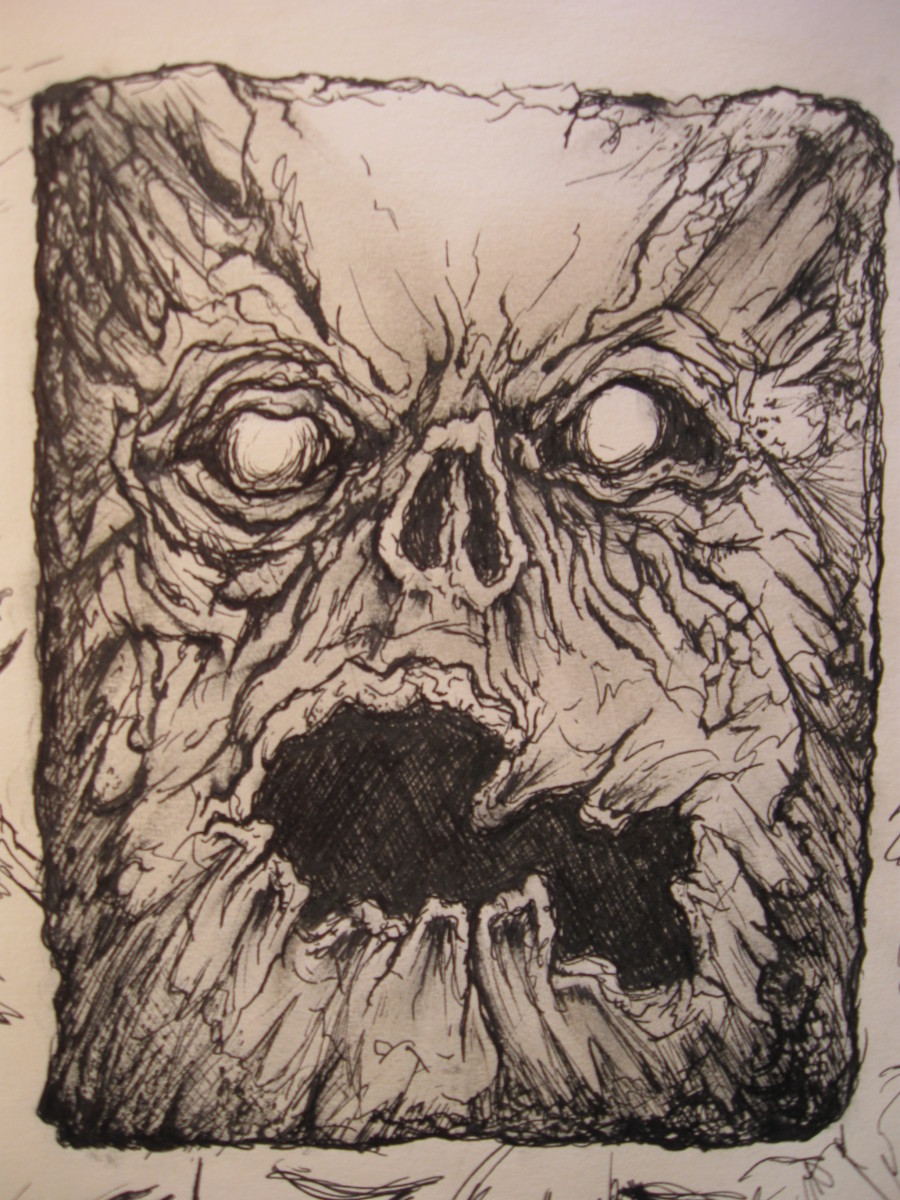Theatre of Hades -The Culinary Black Arts
Black Liquid in the Desert
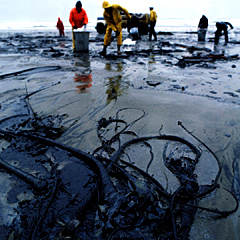
An Introduction to the HADES theatre
The Culinary Black Arts
The residents of West Point, Nevada awoke to an overwhelming roar they’d never known. Rain was rare in the desert, torrent downpours were events of lifetimes. This storm, however, even the eldest had no recollection of. There was no smattering of drops to quick distinguish a single water drop. This rain was thick, every drop was hard as if balls of syrup were dropping from a leaky faucet.
It was night and most in the town were understandably not keen on going outside. They made a concerted effort to stay indoors and recapture the rest of the night. Tommy and a few brave ranchers and gas station attendants pulled out their flashlights and hid their Colt .45’s beneath their clothes lest the be ruined by this strange downpour.
At first it seemed certain all the flashlights were broken, for they did not reveal dusty earth but an ooze that appeared half tar and half maple syrup. Everything without the cover of a roof was smeared with it. Their first reaction was what you might expect of rural people, that God had brought some terrible plague to punish the world for its wickedness.
But no one was sick and air clear of everything except desert sand. So then they had the second reaction one might imagine of a small rural town: they grabbed shovels and started clearing their driveways of this gunk so they could get to work in the morning.
The strange goo wasn’t particularly heavy and easy to lift from the earth. The real problem was getting it off the shovel. Tommy and crew worked until the crack of dawn with cleared driveways but not the gooey streets. No one really wanted to drive a truck through it, and no one was going to risk their own truck in the attempt. So by dawn piles had amassed behind houses and the road clearing crew washed their hands for minutes before sitting down to breakfast. Everyone who’d worked the night imagined the next few days to be hard and unprosperous. Their were streets to clear, roofs to clear, and a sewage system to design that could handle this nightmare.
The rest of the town woke up in various levels of shock. Raining syrup? Was this some sort of eleventh plague, or just some oddity they’d just have to get used to? Cleaning it appeared to be a disaster with so little manpower, and it seemed the wretched thing to do was call the state. The one AM station in town, which barely served much further than West Point itself and the few miles around it, reported no other incidents of the kind anywhere in the country, though the announcer continued to allude to “more on this unfolding story”.
The community banded together to get the roads to the general store open, and house the residents whose roofs had collapsed from the tar syrup’s weight. It was two hours when a man named Ryan Coleridge strolled into town. Everyone of course mobbed him for news of the outside world, but he’d heard nothing of the sort.
He had followed the scent, the most savory smell he had come across in his whole life and then, to the residents’ horror, he rolled a finger in the goo and ate it. Everyone looked at him to keel over. Maybe to vomit, maybe to die, maybe to die in his vomit. Instead he remarked, “Now that beats a big fat steak.”
After it appeared no ill effects occurred, one after the other began to taste the substance that tasted like orgasm topped with chocolate syrup. The residents all looked into each other’s eyes, dumbfounded. Then they saw a town breaking its sweating backs removing a precious commodity.
Everyone moved to look for every container they could find. Truck beds simply weren’t enough. The junk piles behind their rickety homes took new meaning. Broken engines were removed from rusty junkers on cement blocks, the hinges of rusty refrigerators were sawn off, and barbeque pits were thrust wide open. Even Rusty Cheese, an old school bus still sitting where it had been run into a ditch after its engine gave out, suddenly took on a new purpose.
When the goo had been a nuisance to remove everyone worked together. Now everyone worked alone, figuring this stuff might be expensive. But even though they worked selfishly hoping for good times, everyone knew there was too much of the stuff for the whole town to hoard.
Slowly folks from about the outlands trickled in, driven on by the intoxicating perfume of the goo. Strangers were pulling the goo right off the ground. The townsfolk, too overwhelmed by the work and sheer absurdity of the situation took little notice. But as their containers became stuffed the behavior became noted with resentment. This was, after all, West Point goo, it had fallen on their town and they deserved it. They couldn’t have strangers picking it at for free.
A town hall meeting commenced. There was a great deal of shouting, opinions, and planning bandied about. Little agreement could be reached except to block the paved entrances of the roads with what cars were in working order.
One faction insisted the best thing to do with the goo was to keep it a secret. They could eat well for the rest of their lives. God had granted this dusty ghost town with mana they could eat for forty years. No one would have to go hungry again and they could live their lives out in piece and quiet like their fathers and grandfathers and great grandfathers had done.
But no responded the other faction, they could sell it all and get rich. Then they could afford all the food they could ever want, and have mansions and swimming pools to boot.
The factions split the town somewhat in the middle. Dubbed the “free meal” faction by its opponents, consisted of many townsfolk, especially the eldest. They were accused of not having any hopes or dreams, of impeding progress, of keeping West Point the dusty hopeless town it always was, of having no more vision than a free lunch.
The other faction, dubbed the “money grubbers” by its opponents also had a fair cross section of townsfolk, especially with the youth and the parents with ambitions for their children. They were accused of greed, being no gooders, bringing the corrupting influence of money into this town where you looked after your neighbor and values still meant something.
A Secret Ingredient

No decision could be reached, and in the end, there was no need. A gang of restless and reckless youth stole a car and drove it all the way to Reno. There they slept in shifts guarding an old cattle trough full of what was renamed Nevada Surprise. They slipped samples to the most posh restaurants they could find. They returned the day later—everyone knew something had happened, though the boys were completely silent about the details.
Naturally the Free Mealers looked to the boys parents, imploring them not to spare the rod and spoil the child. And while belts were removed and punishment inflicted, no father was cruel enough to their own son to break their code of silence. With all the slop still on the ground though, all exits were fortified with check points and armed guards.
But this was desert country and the few ranches it could still support had horses. They remained unmonitored, however, because it had been too far for them to go to Reno or any other town unnoticed. But this was no bother. The restaurant owners had been alerted by mail and a rendezvous arranged. The owners had been sparing with this new culinary wonder, only adding drops to their spices and sauces. Within the week however, customers arrived from dusk until dawn. To cut down on the work load they had doubled their prices, but the new craving brought more customers just the same. They met the boys with a wad of bills and ensured the boys would be receiving more from now on, provided the town sign a legal contract.
They spoke to the mayor alone, showing him the hard currency and imploring him to sign the contract in whatever way he saw fit. So that next day the mayor called a meeting. He said during last meeting “points were expressed” and “views were made known” but that now people had some time to reflect, they could consider a contract some out of town folks were proposing. It was not the contract the boys had brought him. The terms were less favorable, and even the Money Grubbers said it was an insult and not an offer. They signed against the contract and went home.
This was all to the mayor’s expectations. In the town’s by-laws, to clarify some fights fifteen years ago, was the clause that no town meeting was over until all those present at the meeting declared an official ending. Since the mayor had declared the contract to be the purpose of the meeting, everyone left when they signed against it. When everyone had left the building he signed the other contract itself, insuring that everything was placed in the meeting minutes. He then got on horseback off to Carson City to file the documents, knowing they were in accordance with town law but that he’d be run out of town for trying to enforce them. He opened a bank account in the capital which was to receive a steady income.
The following day cars came down into town and created quite a stir. The townsfolk wouldn’t let the cars pass. One of the drivers came with a copy of the deal that had been signed. This was an affront to their town’s autonomy. They had spent a raucous town meeting rejecting a contract. A man in a suit made a grand entrance next to the lawyer, and read them the town meeting minutes.
Stunned, they listened to how their mayor had simply not announced an end to the meeting. Most of the town folks were befuddled, they spoke about a contract and decided against it. How could the meeting have continued? The most incensed of men and women were aware of the rule that a meeting was not technically over without a formal declaration by a majority of those present—it had been instituted to stop the antics of a particularly ornery mayor who closed down any meetings going in a direction he did not like. To imagine that it was to be used to keep a meeting open that common sense would have declared closed was galling. But, they had to admit that though they’d been swindled, it had all been by the book.
Here were some big city folk already poised to take their precious resource from them. But, it was pointed out, the contract called for three cubic feet a week, not even a trunkful, and the stuff was just lying around. Maybe it might spoil? It didn’t seem a particularly big deal, and the money would be nice. The town was even titled to 40% of the money from each sale (The mayor claiming 30%, and the boys receiving the rest) which was hefty.
There was great roar over how to spend the funds. The old mayor had resigned after the swindling, and fourteen people put their hats in the ring for mayor. Satellite dishes, swimming pools, fast food joints, shopping centers, and all manner of preposterous designs were bandied about though no single person could agree on the extravagance.
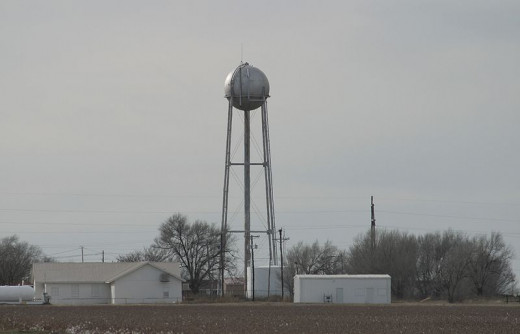
And so those Free Mealers got their mayor because they could all agree on one project: fresh drinking water from the tap. Since their new contract would provide guaranteed income, it was agreed the town could issue the bonds necessary for earth moving equipment in order to divert a freshwater stream. Even the people who had opposed this group of “conservative curmudgeons” had to admit they were doing a great job building up town infrastructure. Within a few months people were bringing their buckets to the filling stations and marveling out how you could still see the bottom of the pale like new glass. Modern technology finally came to West Point.
But something else had arrived too. The bonds and the restaurants had attracted outside attention. The investors were happy with the rate of return and the restaurants with the increase in business. But with an increase of money exchanging hands so too came the intelligence. Cooks were set to infiltrate the businesses to discover the source of the new flavor and chemical companies made secret deals with individual townsfolk in the hope of deriving a patented product.
All these things were little deals of course, but over time people stopped looking each other in the eye, and the expression went around that “our trust went with the wells”. The roads were so poor that prospectors couldn’t drive much more than a truck load out at a time. Then came the West Point Mobility Act.
No one in town could remember asking for or proposing to state or federal officials for a four lane highway to Reno. Yes, it was to be admitted that many townspeople traveled to Reno to shop and the road did a wonder to their vehicles. But everyone expected the roads to be hell on their vehicles, and drove to Reno anyway.
At last just about everyone in West Point was united in opposition to this development. Whether you just want to retire in peace with good food and water, or you wanted to leave West Point to strike it rich, as soon as a four lane highway was built, anyone could just pick the stuff off the ground.
Angry letters were written and of course unofficial check points were to be set up on the road. If there wasn’t an abundance of shotguns in West Point before this, there certainly were now, and business was so lucrative that a gun dealer tried to get an exclusive contract, only to find out at the end of a barrel what the people of West Point thought of exclusive contracts. West Point’s local representatives, meanwhile promised to take the fight to Washington if need be.
Still, the work continued. Citizens of West Point dumped exhausted vehicles on dirt paths, but these were easily moved to the sides of the roads with gargantuan yellow bulldozers. The anger finally erupted and the citizens went to the construction vehicles with shotguns and forced them home. This antagonism only brought the highway patrol and the national guard.
It was agreed to sell all the spare ground supplies as quickly as possible. The first stop were the Reno restaurants desperate to get their hands on this new craze. The restaurants did not have the acumen to use the goop as a spice but instead served it up as its own dish.
Government Machinery
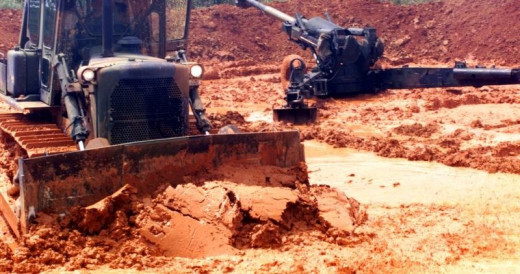
Though no one never seemed to know who sent for them, helicopters with paramilitary officers and construction equipment came in daily on an improvised landing pad of sandstone and black spray paint. The officers said nothing but what propriety demanded, and they helped drill holes in the desert to keep the resource out of stranger's hands.
Construction workers were on the job 24 hours a day and the four lane highway neared completion. As much as the residents tried to hoard their assets, a great deal of goop remained on the ground. Having learned the Nevada government was after their resource with a powerful will, West Point objections to exclusive contracts broke down. The Free Mealers already saw their hopes of plenty disappear to greed and modern trade. The Money Grubbers set most of the terms. 10 cubic feet per day to exclusively to the state of Nevada, with the continuing 3 cubic feet a week to Reno restaurants.
The constituents of Reno hoped that had things settled, so things would finally be over. Their resource would disappear, eventually, but with more than enough time to develop the area. Everyone agreed the Free Mealers had done an excellent job upgrading the water in the Dusky Town of West Point. So they were implored to provide more input, despite their political estrangement, for the good of the town. Everyone still wanted satellite dishes and swimming pools, but education was high on the agenda as well.
But this time there was so much money coming in that people could have a little of everything. New schools, cell phone towers, satellite dishes, and local banks seemed to rise up from the other faster than one could pitch a tent.
Strange folk settled in. Teachers and construction workers and electrical engineers and fancy bankers. They demanded things West Point never knew it needed: convenience stores and movie rentals and upscale clothing. The Free Mealers said “Ha! You wanted money, here it is.”
Actually for a great deal of residents the prospect of a real town instead of hamlet were excited but just a tad nervous. It wasn’t so much that they didn’t like all the new things they were getting. But as far back as anyone could remember, if the consensus of a town meeting was “no” they could stop any business owner or type of business. If the community didn’t want something, it didn’t get it. Now things had gotten out of hand.
A group of parents assembled to boycott the movie retail. They didn’t want their children watching R rated films without their consent. A group of ranchers insisted the fast food joints be required to use exclusively local beef. Liquor store and casino proposals were an affront to the community. It was moved to have them banned, but in fact they did much more than that. An elderly woman desperately against the state and the transgressions of alcohol and gambling levied a 500% tax on any establishments should the ban be broken. Should the institutions move in on the town anyway, they would still have an overbearing tax burden to reckon with..
As far as liquor was concerned the efforts proved fruitless. The satellite TV’s brought news of terrorists and oil spills and government shutdowns. Bootleggers from all over came to quench the town's new thirst for alcohol. Bootlegging supplies were irregular and a constituency of bootleggers and their customers convinced the state government to let West Point open a liquor store. It was still taxed 500%, but the large stashes many had made before the official contract was easily smuggled off to private sources.
Extravagance

A surge of income from liquor taxes came into the community. No one knew how to spend it. It seemed every want the town could have conceived was already there. Children were getting lessons from swimming instructors and when they weren’t swimming they were watching TV. The Free Mealers deplored this development because the children seemed indifferent to their newly expanded opportunities at the school they worked so hard to fund and build. The once dusty streets were black and no one expected the income to run out.
But there were folks all over the country looking to take advantage of the new school and its brightest talent. Money was not an issue for them. They began buying land in a ring around the town circling it. Accents circled the town and no one seemed to speak West Point English anymore. The houses built up had given the townsfolk a great deal of work, but the local construction workers didn’t have this capacity so they hired out to contractors. Enormous pressure to put the houses up as fast as possible pushed up construction prices and home values.
Soon half the town could no longer afford state property taxes unless they auctioned off what ever blackness remained on their town property. Empty circles began appearing amidst heaps of blackness. In the end it was impossible to keep up, and for the first time since anyone could remember, West Point residents became homeless while houses in their families for 3 to 4 generations were quickly bought up by outsiders. At first these poor families made it by selling the black on the open market, but soon it became law that one was to touch the stuff without a federal permit.
The situation was intolerable. Neighbors looked after each other. They didn’t let them scorch on the streets. So it was agreed to put the old families in subsidized housing somewhere out of town. Consciences were clear, though few knew where these families really were. The children rode in on bus for school, and then rode on back after, silent.
Meanwhile more and more could be heard from the residents in the outer circle. They wanted museums for their kids, and after a planned exhibit of West Point history proved too boring, in came the idea to have a natural history museum, where children could learn how dinosaurs were wiped out by a giant meteor, how overhunting killed the mammoths, and how Neanderthals interbred with the descendants of today’s humans.
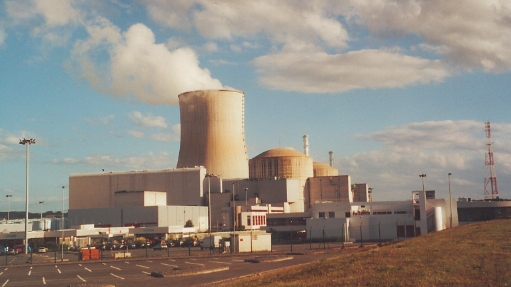
All of this extravagrance of course, needed far more power than the outside wires could supply, and so a nuclear power plant was built. No one in West Point had really understood nuclear power, so they had no idea how safe it would be, but the experts said it would be the best choice for West Point’s growing power needs.
So it happened. It just happened. In a West Point not so long ago, there would be a town meeting. People would express their views. A vote would be taken. But now that things just kept popping up in West Point, the houses and the chain stores and the outer ring suburbs that no one really bothered. There was a meeting to increase extraction to 50 cubic meters a day, but no one was there to object as they sat around getting drunk and watching Who Wants to Be a Millionaire?
The people rarely left their houses these days. With cell phones and internet chat rooms it seemed unnecessary. Outside the latest building was set up, a cryptic place named F.A.R.M. To the residents of West Point just another monolithic structure. It was part geologic station part chemistry lab. New scientists showed up, intending to discover the chemical makeup of the goop and how it came to fall from the sky. West Point residents were interviewed, but to little avail—the stuff just fell from the sky, once, and no one had seen any evidence it would return.
News spread of the questioning, and it didn’t take much time for a few residents to realize they could be paid huge sums for propagating a myth that the goop came in the form of a geyser that flushed over the town—they were sure it was out west and that the ranchers had been hiding the source all along. They were in fact paid quite well for this hoax and used the money to flee the town, the state even—some for the rugged mountains and others for rural areas of the breadbasket where there was still farm and ranch work to be had.
The story brought nothing but misery to the ranchers who hadn’t a clue about what just occurred. In the middle of the night men with guns and helicopters whisked them away to a secure location where they were questioned like murders that had no right to remain silent. After hours upon hours of interrogation they all confessed the goop came from somewhere on the ranches. No one’s story corroborated the others but the government didn’t seem to care. They too were scattered with enough money to live off for a while.
Meanwhile drilling equipment and seismographic equipment littered the countryside. Money once again poured into West Point, though by now the residents hid the cash under their mattresses, convinced the end was near. They were only incensed when a young and charismatic preacher entered town, warning Armageddon was near, the Kingdom of God was at hand, and that everyone beware of all tattoos and lecherous women.
Man came with shotguns and gasoline to burn down every tattoo artist in town, firmly in belief that they were practicing their art so that could one day brand people with the mark of the beast. Martial law was declared and in an affront to the towns citizens all weapons were to be confiscated. The sheriff was paid a great sum to tell enforcement officers who had guns, an anticipation of how many guns one could expect to find and the risk involved. Men came with warrants to disarm the populace. It was an affront, but most realized any shoot outs would just bring more trouble. So they gave up their shotguns and rifles but generally hid pistols under floorboards and in pockets in the attics.
The dry holes out in the ranches only worsened the towns predicament. In order to pay for the operation 150 cubic meters a day were to be hauled. The town square soon became visible. There was plenty of the stuff still on the ground, but seeing those old rickety roads made it clear the gravy train wouldn’t last forever. With no jobs and no way to feed themselves once things ran dry, a number of the old families deserted the place. Their places were demolished to build ice cream parlors and gas stations.
More river water was diverted, and the scale of equipment became bigger and bigger. The operators failure in the ranches only convinced them that the source of the black resource was somewhere else in the area. After all the blackness hit a single town. It couldn’t have been an atmospheric phenomenon. It had to have come from a geyser from somewhere.
F.A.R.M. redoubled their efforts as well, only they were unable to deduce its chemical structure or mixture. They feed the substance to bacteria that reproduced with great swiftness but whose metabolic processes could not be determined. The blackness seemed completely resistant to all the known methods of science.
As this became more widely known outside the laboratory, a small but unnoticeable trend began of folks moving away. West Point’s excitement for them was its status as a boom town, the place to be. It seemed increasingly that the town’s famous black goop would remain unknown, to eventually be consumed just like any food. Production was slightly curtailed to make it available to residents, but even its thick, savory, enchanted flavor was not enough to entice everyone.
Another kind of resident came to take their places. They had little interest in science or education and instead focused on making West Point a stomping ground like Vegas. They revitalized the downtown, putting up music venues and dance clubs. West Point was going to be a night town, successful on the new domestic product.
People came from all over the world to play in clubs, watch dancers and take digital photos of the remaining old houses of West Point. A few citizens, looking to finance their satellite televisions let the tour guides go through their houses at all hours of the night.
Last Hopes for the Desert
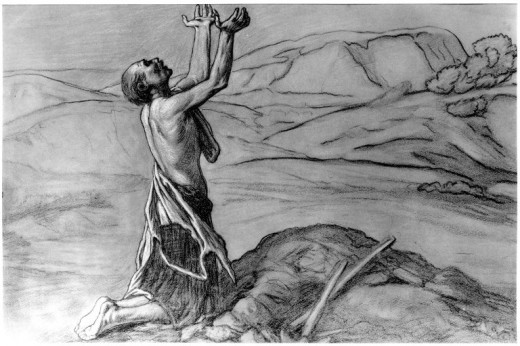
Sun scorched women came in tank tops and daisy dukes while the old preachers talked of the Whore of Babylon. The New Preaching (that’s what the commerce department called it) was a growth industry. Every nuance of the state of West Point could somehow be linked with Revelation or if credulity was strained then the book of Daniel. They attracted scores of followers dismayed by the prostitutes, drugs, and music which could be acquired at all times of the night. Now West Point seemed like nothing but a drunken party, a watering hole for people with no desire to manage their appetites.
One by one the scientists left and their equipment was abandoned. The machines found nothing but sand and sandstone. As F.A.R.M.’s failures grew, pressure surmounted from the state to produce results or relocate elsewhere. The big hauling trucks soon began to leave as well. It was becoming harder and harder to truck less and less goop for the exchange rate to be favorable. The town had a budget crash. It was first averted by making smaller deals with ever distant markets. The citizens of West Point had no idea where this stuff was going, and made deals with Portland Maine, Halifax, Edinborough, Marseille, Istanbul, Seoul, and Auckland. Diplomats came to translate and accountants came to manage and handle exchange rates. So for a time the crash was halted by these exports. How their resources got to their destinations was a marvel for the time being.
It was proposed by a number of residents to start up a few sin taxes. The alcohol tax had provided a great deal of revenue in the past before it had been abolished. But about 12% of these establishments were owned directly by the mob, and another 27% played protection money—so these taxes where overwhelmingly stifled by local business. How the mob could operate in such open secrecy was a marvel to people not used to it, but the unregulated West Point banks had in fact been taking mob money since its first liquor store was opened.
That piddly operation had been dwarfed by Nevada’s Grand State Liquor Emporium, a liquor store larger than your average Walmart—for a resident population of 2000 people. They even had a night time employee whose sole stated purpose was to brush the glass of broken bottles from the side of the street, although rumor had it he was a pimp who directed customers to nearby inns.
It was a rather odd sight, men intent on flushing down their own lives while paying to bring other lives into the world. The old West Point had a town drunk but not the hordes who seemed to drink not because they enjoyed being slushed a bit too much but seemed intent on drinking themselves to death each night, and marveling in the body’s capacity to wake up the next day, nor matter in how poor of a condition. It seemed that was their rush, waking up from a night that should have killed them.
And in this new desolation a new goop entered West Point, one that could be brewed in back hitch trailors and dilapidated basements. There were few areas that would where one could grow plants of any kind and so meth sprawled into the city pretty much the same time as the last of West Point’s famous black goop finally rolled out. The few remaining residents were glad to see it gone—only to find themselves at gunpoint and knifepoint because the story circulated that residents at one time had hoarded personal stashes.
So the last of the old residents hauled out old stores if able, and pretty much left town. It was a portentous trend. Ranchland had been eaten by new developments so there was no food, and water had subsequently been diverted even further upstream. No industry had set foot in the town so when the town developed a notoriety for dangerous methheads and dirty whores, one by one even the bums left West Point, now a ghost town, except for myself and my childless wife. Even in heaven I don’t know if there will be enough time to truly understand what happened.
Why the rain, that once in a lifetime slop never to be seen again? What in the hell did F.A.R.M. ever discover (I still haven’t found what agency uses that acronym) about it? Why did the desires of West Point’s citizenry (both old and new) come to resemble something more like forces of nature than human beings? I don’t know. All I can remember is that old saying: “shallow brooks are noisy, still waters run deep.”


